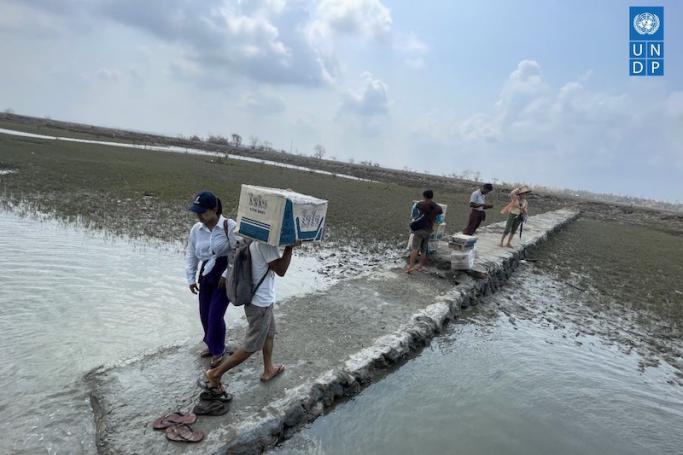The Myanmar military regime has created a “climate of fear” in its brutal oppression of the civilian population since the February 2021 coup, including a blockade of access to international aid, according to a recent report from the Office of the High Commissioner for Human Rights (OHCHR).
James Rodehaver, the chief of OHCHR’s Myanmar team, said in the report that the junta used heavy weaponry on civilian areas and airstrikes, burned food stores, crops and seed stores, destroyed medical facilities, targeted medical workers, and planted landmines to prevent the return of displaced persons to their homes.
In the aftermath of the deadly Cyclone Mocha that swept through western Myanmar, the Myanmar military restricted international aid in the cyclone-hit area affecting 1.6 million people across five areas of the country - Rakhine, Chin, Sagaing, Magway and Kachin.
The report also said that after the military coup, over 17.6 million people, accounting for one-third of the overall population of Myanmar, are in need of aid.
OHCHR Spokesperson Ravina Shamdasani reported in Geneva on the comprehensive human rights update for Myanmar, saying that intentional obstruction or denial of humanitarian assistance of the Myanmar military may amount to serious violations of international law, while aid workers are consistently exposed to risks of arrest, harassment, other mistreatment, or even death.
She also said that the junta treated aid workers as opponents to their rule, rather than respecting their need for protection and facilitating their access and assistance to the civilian population in a time of crisis.
Shamdasani warned that intentional obstruction or denial of humanitarian assistance may further constitute war crimes such as willful killing, torture and other degrading treatment, starvation, and collective punishment, adding that it may also constitute crimes against humanity, such as murder, “extermination, torture and other inhumane acts, or persecution under the context of a widespread or systematic attack against a civilian population”.












